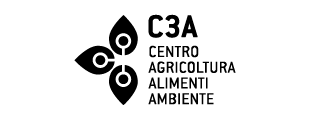Lecturers: Franco Biasioli, Iuliia Khomenko, Eugenio Aprea, Brian Farneti
Summary: Direct and ambient mass spectrometry: principles and applications in food, health and environment. (8 hours lectures, 24 hours practicals).
Module 1 (8 hours): Direct methods in mass spectrometry and their implementation. Basic introduction to mass spectrometry. Rationale behind direct methods in mass spectrometry also in relation with alternative approaches (e.g. gas chromatography, solid state sensors, spectroscopy) and with a focus on volatile compounds and process analytical technologies. Principles and implementation of direct and ambient mass spectrometry. Data analysis strategies for fingerprinting mass spectrometry. Examples of applications of direct mass spectrometric methods in food, health and environment with a focus on the class interests.
Skills acquired: Basic knowledge of mass spectrometry. Critical understanding of pros and cons of direct mass spectrometric methods. Improving students’ vision and scientific activity with a sound understanding of the possibilities of rapid, non-invasive and advanced analytical methods.
Module 2 (24 hours): Application of direct injection mass spectrometry to a case study agreed with the class. After a short hands-on course on a Proton Transfer Reaction Mass Spectrometry (PTR-MS) set up, the class will propose and detail an experiment based on PTR-MS fingerprinting of samples of relevance for c3a and of interest for the involved students (scientific/technical question, literature search, experimental plan) and perform the necessary laboratory work (sample preparation, measurement, data analysis). Finally, the class will be required to report on the results in the form of a conference talk and/or a paper manuscript.
Skills acquired: Application of advanced instrumentation for volatile organic compounds monitoring in food, health and environment: sampling, measuring and data analysis. Planning and execution of a detailed experimental work. Reporting on experimental work. Basics mass spectrometry and multivariate statistics.
Course Schedule : ATTENTION: the course has been post-poned to July-August 2020
Period |
Hours |
Location (place and Room) |
|
|
||
Registration procedure: in order to formally register in the course, please write an e-mail request to phd.aes@unitn.it
Evaluation procedure: Final written report or presentation

